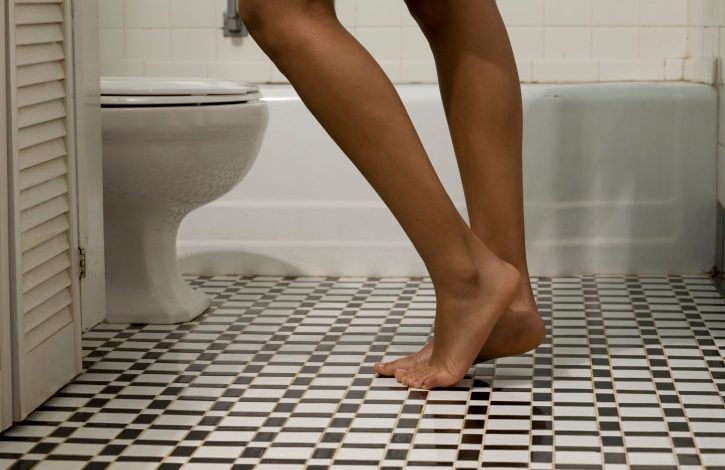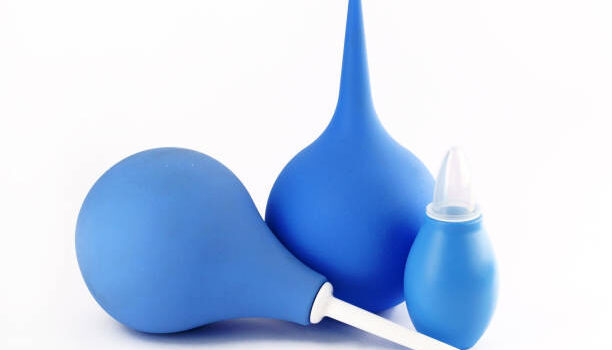What It Is, Risks, and Safe Alternatives


Sisters, you’ve had a long day, maybe just got home from work or after a night out, and you notice a little odor or discharge. Your first thought? “I need to douche.”
You’re not alone. Millions, yes millions, of women have reached for a douche thinking it’s the shortcut to feeling clean. But here’s the truth: douching isn’t the quick fix you think it is, and in many cases, it can actually do more harm than good.
Before you grab that bottle, let’s break down what douching really is, why so many women do it, and if there are safer, smarter alternatives to keeping your vagina healthy.
What is Douching?
“Douching” is from the French word douche, which means “wash.” It is the practice of rinsing or cleansing the vagina with a liquid solution.
These solutions often mix water with vinegar, baking soda, or soap. Some people buy store-bought kits with antiseptic cleaning solutions and high-pressure applicators for injecting the solution.
According to the Office on Women’s Health (OWS), about one in five American women aged 15–44 have tried douching, usually to:
-
Eliminate odor, itching, or discharge
-
Prevent pregnancy or infections (though it doesn’t work)
-
Feel cleaner after sex
“People choose to douche because they don’t feel clean enough,” says Cleveland Clinic nurse practitioner Molly Gumucio. “They have an odor and they’re trying to get rid of it. Or after intercourse, sometimes, they want to use it.”
RELATED: Dr. Drai Says: “Leave Your Vagina Alone!”
Is Douching Safe?
Simply put, no, it is not considered safe and can actually increase your risk for infections and other health problems. It’s also a huge myth that douching can prevent pregnancy or infections.
“Douching is not advised because the vagina is a self-cleaning organ,” Gumucio explains in a recent Cleveland Clinic article. “When you try to cleanse it yourself by using a douche, you actually flush out the normal, healthy microbes as well as temporarily change the pH, which changes the acidic versus basic nature of the vagina.”
Because the vagina is a self-cleaning organ, using a douche can also encourage an overgrowth of bacteria or fungus.
This can lead to:
-
Yeast infections
-
Bacterial vaginosis
-
Sexually transmitted infections
-
Pregnancy complications, including ectopic pregnancy and preterm birth
-
Vaginal dryness and irritation
-
In rare cases, pelvic inflammatory disease from high-pressure applicators
RELATED: Health Risks of Douching

What to Do Instead of Using a Douche
The OWS says that you shouldn’t do anything instead of douching.
It’s best to allow your vagina to cleanse itself, as it was built to do. It does this by making mucus, which helps flush out blood, vaginal discharge, and semen.
“Some over-the-counter products can make symptoms worse or irritate your skin,” Gumucio warns.
You should simply wash the outside of your vagina regularly with mild soap and water to cleanse away whatever was discharged in the mucus. This can help cut down on vaginal odors, itching, and recurring infections.
“Try to avoid using scented body wash and just stick to warm water and gentle soaps that usually don’t strip away all that good bacteria and flora,” Gumucio advises.
The OWS and Gumucio also recommend steering clear of scented feminine hygiene products, like perfumed tampons, sprays, and powders.
“Some of the over-the-counter products tend to make your symptoms worse or irritate your skin,” Gumucio shares.
When to Seek Medical Advice
If vaginal odor, discharge, redness, burning, or pain during sex or urination don’t clear up in about a week, the Cleveland Clinic suggests making an appointment to see your doctor.
Gumucio explains that, “if you smell a persistent and foul odor, or if any odor is accompanied by a thick or greenish discharge, you may have an infection. If you have pain, rawness, or sores in your vaginal area, it’s time to consult your doctor.”
RELATED: Top 10 Myths About Women’s Sexual Health
FAQ About Douching
What is douching?
Most people douche to feel cleaner, reduce odor, or prevent infection, but it’s proven to be ineffective.
What is the meaning of douching?
Douching literally means washing out the vagina with a liquid solution, often for perceived hygiene benefits.
Is douching safe?
No. Douching can disrupt healthy vaginal bacteria, change pH, and increase infection risk.
Can it prevent pregnancy or infections?
No. Using a douche does not prevent pregnancy or sexually transmitted infections.
How should I clean my vagina safely?
Stick to washing the vulva with mild soap and warm water. Let your vagina naturally maintain its balance. Avoid scented products.
RELATED: 8 Ways Your Vagina Changes After 40
The Bottom Line on Douching
Douching may feel like a quick way to feel fresh, but it’s not a safe or effective way to care for your vagina.
Your body knows how to keep itself clean. Your best bet is to practice gentle hygiene, stay aware of any unusual symptoms, and consult your doctor if something feels off.
Skip the douche and let your vagina do its thing; it’s smarter than any quick rinse could ever be.




